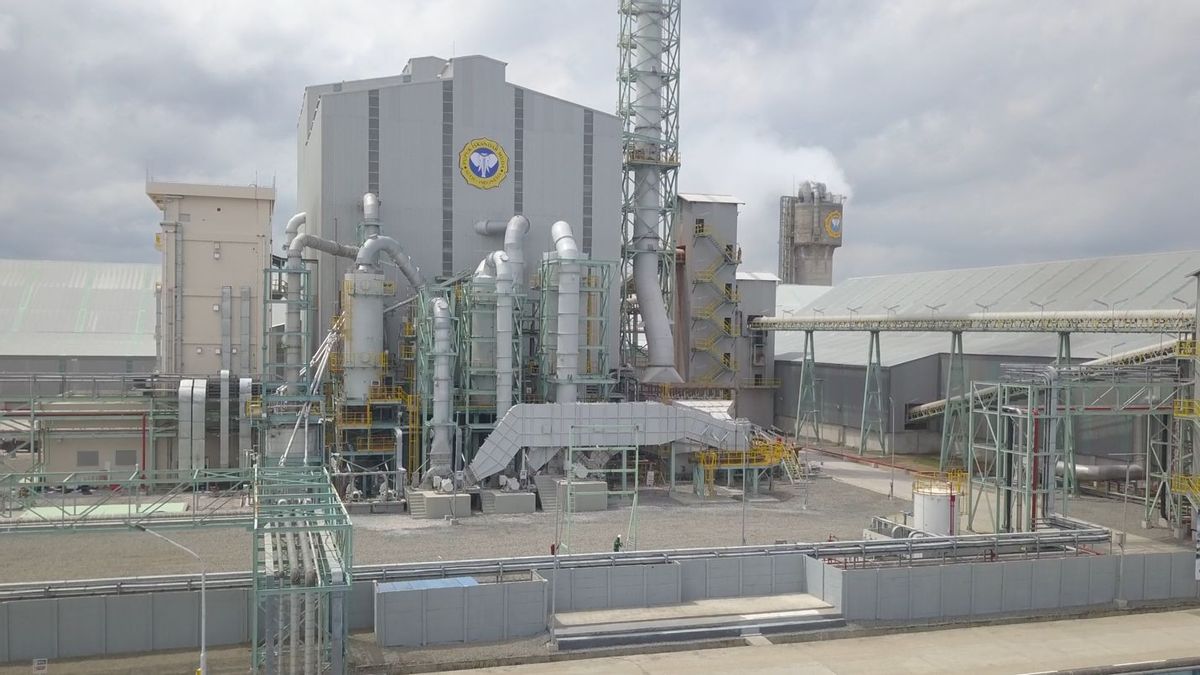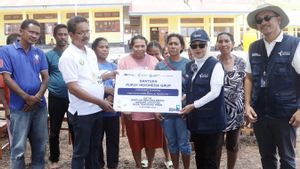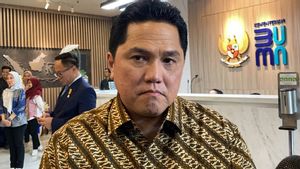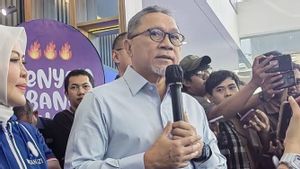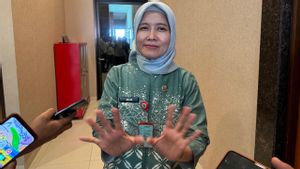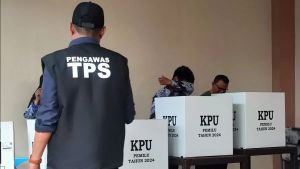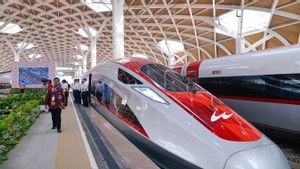JAKARTA - PT Pupuk Indonesia (Persero) showcased the Green Ammonia Initiative from Aceh (GAIA) project at the 29th Conference of the Parties (COP) UN Climate Change Conference in Azerbaijan. The project is predicted to be the first hybrid green ammonia facility in the world.
For your information, PT Pupuk Indonesia (Persero) participated as a member of the Indonesian delegation at the 29th Conference of the Parties (COP) UN Climate Change Conference in Baku, Azerbaijan.
President Director of Pupuk Indonesia, Rahmad Pribadi said that PT Pupuk Indonesia (Persero) emphasized Indonesia's position in the global green energy transition through the GAIA Project.
"The GAIA Project is not only an effort to increase the efficiency of the use of existing assets, but also our innovation in creating sustainable solutions that have a positive impact on the environment, the economy, and even support food and energy security," he said in an official statement, Wednesday, November 13.
Rahmad said that this project utilizes an ammonia factory owned by a subsidiary of Pupuk Indonesia, namely Pupuk Iskandar Muda (PIM) in Aceh. In addition to producing ammonia from natural gas raw materials, this plant will also produce green ammonia from hydrogen produced through the electrolysis of water.
If this green ammonia can be produced consistently, Rahmad continued, Indonesia has the potential to make it a strategic commodity with high economic value as global demand increases.
"In addition to of course supporting the achievement of Indonesia's Net Zero Emission target in 2060," he said.
To realize this, Rahmad continued, Pupuk Indonesia is collaborating with two Japanese companies, Toyo Engineering Corporation and ITOCHU Corporation, in a joint venture that supports the value chain of green ammonia production and distribution.
Rahmad said this collaboration not only accelerates the implementation of low-carbon technology in Indonesia, but also reflects Pupuk Indonesia's commitment to combating climate change through international collaboration.
"By combining expertise from various countries, Project GAIA is expected to be a clean energy solution that has a positive impact globally and strengthens Indonesia's position on the world's green energy transition map," he said.
In the GAIA Project ecosystem, he continued, electricity to produce green hydrogen comes from renewable energy sources supplied by PLN, design and build technology or EPC from Toyo, and support for the ship fuel supply chain (marine bunkering) from ITOCHU.
"The GAIA Project is also intended to accelerate the downstreaming of the chemical industry in Indonesia, with an approach that supports sustainability through renewable energy," he said.
Rahmad said this project will make Indonesia a pioneer in producing green hybrid ammonia, which is not only useful for domestic needs, but also as a high-value commodity for export.
In the future, he continued, this business model can be replicated in other ammonia production facilities in Indonesia, even internationally, supporting sustainable downstreaming by utilizing green energy.
Rahmad also believes that the GAIA project can contribute positively to the Indonesian economy. In addition to attracting investment, this project is certain to also create new jobs in the green energy sector. Moreover, in the long term the GAIA Project can be expanded to other ammonia production facilities in Indonesia and even abroad.
The expansion of the GAIA Project business model at the Pupuk Indonesia Group's ammonia production facility in the future is expected to guarantee the supply of environmentally friendly fertilizer raw materials.
"This is essential considering that fertilizer contributes to increasing agricultural productivity, thus supporting the fulfillment of domestic and regional food needs," he explained.
The Arun Special Economic Zone (KEK), Lhokseumawe, which is the location of the GAIA Project, provides infrastructure that supports green investment and accelerates the realization of the economic potential of this project.
SEE ALSO:
With more than 50 years of expertise and experience in producing, storing, and distributing ammonia, Pupuk Indonesia is in a strategic position to make Indonesia a major player in green ammonia at the global level.
Rahmad said that in addition to fertilizer and food, the development of green ammonia can also support the global maritime sector, which is projected to adopt green ammonia as an environmentally friendly fuel by 2050.
"Through the GAIA Project, Pupuk Indonesia is at the forefront of low-carbon technology innovation. This initiative is not only a milestone for the decarbonization of the national fertilizer industry, but also has the potential to be a model for other countries that want to develop green ammonia," he said.
The English, Chinese, Japanese, Arabic, and French versions are automatically generated by the AI. So there may still be inaccuracies in translating, please always see Indonesian as our main language. (system supported by DigitalSiber.id)
